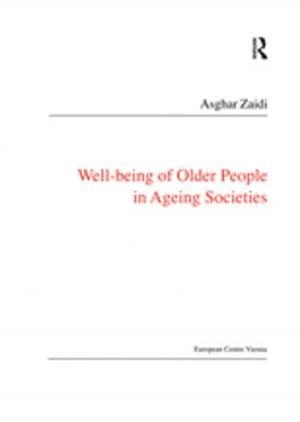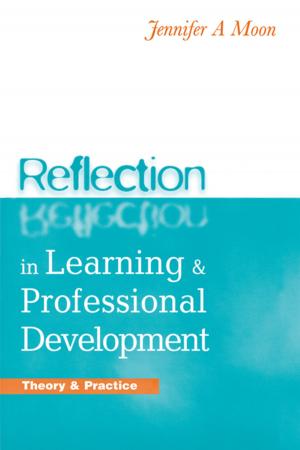Forced Migration and Social Trauma
Interdisciplinary Perspectives from Psychoanalysis, Psychology, Sociology and Politics
Nonfiction, Health & Well Being, Psychology, Psychoanalysis, Mental Health| Author: | ISBN: | 9780429778919 | |
| Publisher: | Taylor and Francis | Publication: | October 31, 2018 |
| Imprint: | Routledge | Language: | English |
| Author: | |
| ISBN: | 9780429778919 |
| Publisher: | Taylor and Francis |
| Publication: | October 31, 2018 |
| Imprint: | Routledge |
| Language: | English |
Forced Migration and Social Trauma addresses the topic of social trauma and migration by bringing together a broad range of interdisciplinary and international contributors, comprising refugee care practitioners, trauma researchers, sociologists and specialists in public policy from all along the Balkan refugee route into Europe. It gives the essence of a moderated dialogue between psychologists and psychoanalysts, sociologists, public policy and refugee care experts.
Migration is connected to social trauma and cannot be handled without being aware of this context. The way refugees are treated in the transit or target countries is often determined by the socio-traumatic history of these countries. Social trauma can be collectively committed and perpetuated, leaving transgenerational traces in posttraumatic and attachment disorders, uprootedness and loss of social and political confidence. Media and cultural artefacts like press, TV and the internet influence collective coping as well as traumatic perpetuation. This book shows how xenophobia in the refugee receiving or transit countries can be caused by projection rather than by experience, and that the way refugees are received and regarded in a country may be connected to the country’s cultural‐traumatic history. Refugees, who are often individually and collectively traumatised, experience multiple re-enactments; however, such retraumatisations between refugees and receiving populations or institutions often remain unaddressed. The split between welcoming and hostile attitudes sometimes leads to unconscious institutional defences, such as lack of cooperation between medical, psychotherapeutic, humanitarian and legal institutions.
An interdisciplinary and international exchange on migration and social trauma is necessary on all levels – this book gives convincing examples of this dialogue. Forced Migration and Social Trauma will be of great interest to all who are involved in the modern issues of refuge and migration.
Forced Migration and Social Trauma addresses the topic of social trauma and migration by bringing together a broad range of interdisciplinary and international contributors, comprising refugee care practitioners, trauma researchers, sociologists and specialists in public policy from all along the Balkan refugee route into Europe. It gives the essence of a moderated dialogue between psychologists and psychoanalysts, sociologists, public policy and refugee care experts.
Migration is connected to social trauma and cannot be handled without being aware of this context. The way refugees are treated in the transit or target countries is often determined by the socio-traumatic history of these countries. Social trauma can be collectively committed and perpetuated, leaving transgenerational traces in posttraumatic and attachment disorders, uprootedness and loss of social and political confidence. Media and cultural artefacts like press, TV and the internet influence collective coping as well as traumatic perpetuation. This book shows how xenophobia in the refugee receiving or transit countries can be caused by projection rather than by experience, and that the way refugees are received and regarded in a country may be connected to the country’s cultural‐traumatic history. Refugees, who are often individually and collectively traumatised, experience multiple re-enactments; however, such retraumatisations between refugees and receiving populations or institutions often remain unaddressed. The split between welcoming and hostile attitudes sometimes leads to unconscious institutional defences, such as lack of cooperation between medical, psychotherapeutic, humanitarian and legal institutions.
An interdisciplinary and international exchange on migration and social trauma is necessary on all levels – this book gives convincing examples of this dialogue. Forced Migration and Social Trauma will be of great interest to all who are involved in the modern issues of refuge and migration.















